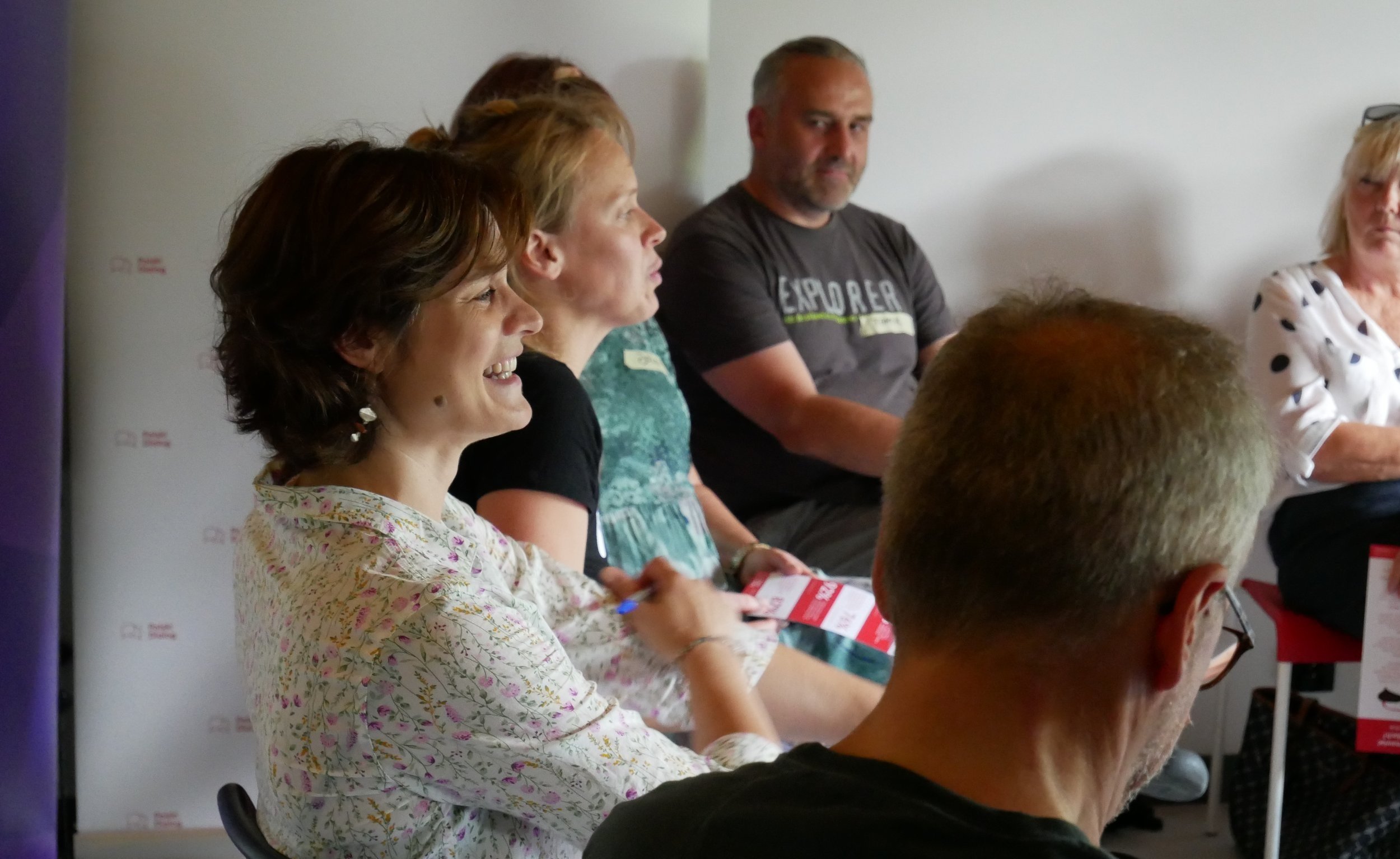Dialogues: How do they work?
A community dialogue is a format of conversation that allows individuals to exchange on socially important and contentious topics in a calm and respectful manner. People holding opposing views, values or perspectives meet to better understand each other – not to convince one another. Dialogues provide a space for active listening, reflecting on one's own beliefs and examining the underlying needs and values.
The goal of a dialogue is to enhance mutual understanding among participants. This is made possible through a trustful atmosphere held by facilitators, enabling participants to share their perspectives, personal experiences, and emotions related to the topic – without engaging in an intellectual debate. Dialogues offer an opportunity to understand what lies beneath general terms such as family, patriotism, security, how different individuals perceive them, and what shapes these perceptions.
So how does this work?
A dialogue follows a sinusoidal dynamic, where the group intermittently moves apart and comes together. Based on our practice, we have identified six points of tension which typically arise–and which, if the dialogue is successful, become breakthrough moments towards greater community. At the beginning of a dialogue participants display uncertainty, are fearful of the unknown people they are meeting and concerned about the risk of a heated exchange as seen in televised politics or experienced in family settings. They often try to identify and categorize others: Who is who? Whom do they vote for? Is he one of “us” or “them”?
Behavioral patterns typical of debates are instinctively activated: impatient listening, searching for counterarguments, readiness to attack and defense. However, in a dialogue, these behaviors prove to be unhelpful and gradually diminish, leading to a sense of calm. As hostility and defensiveness recede, curiosity and sympathy emerge. Individuals may test this new situation several times before trusting it. Tension points are particularly important, as they often serve as breakthrough moments that deescalate and build a sense of community. For more on our dialogues see here.
Written by Joanna Matera and Olga Białobrzeska










